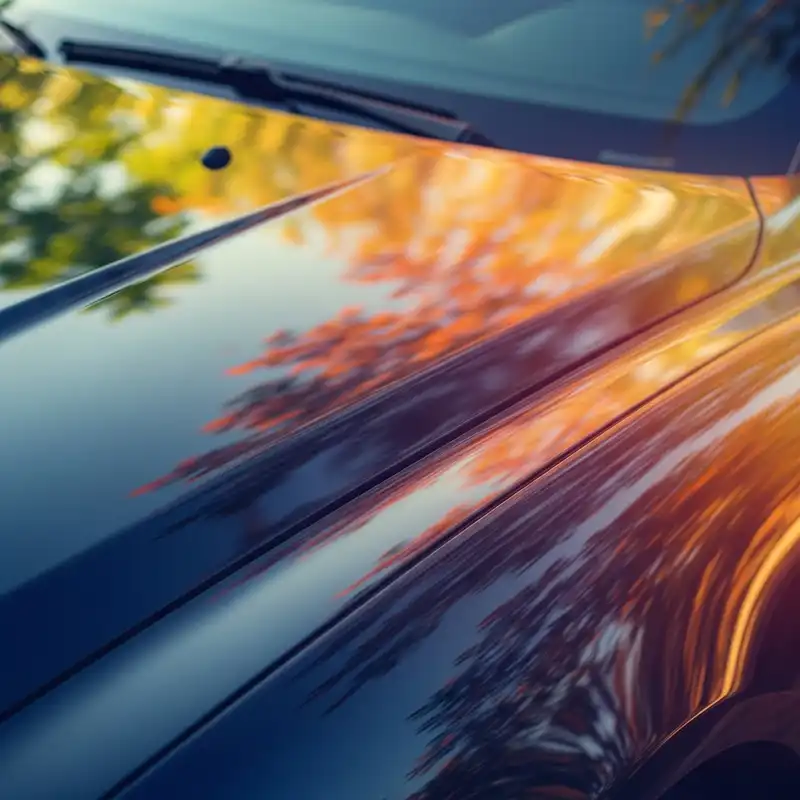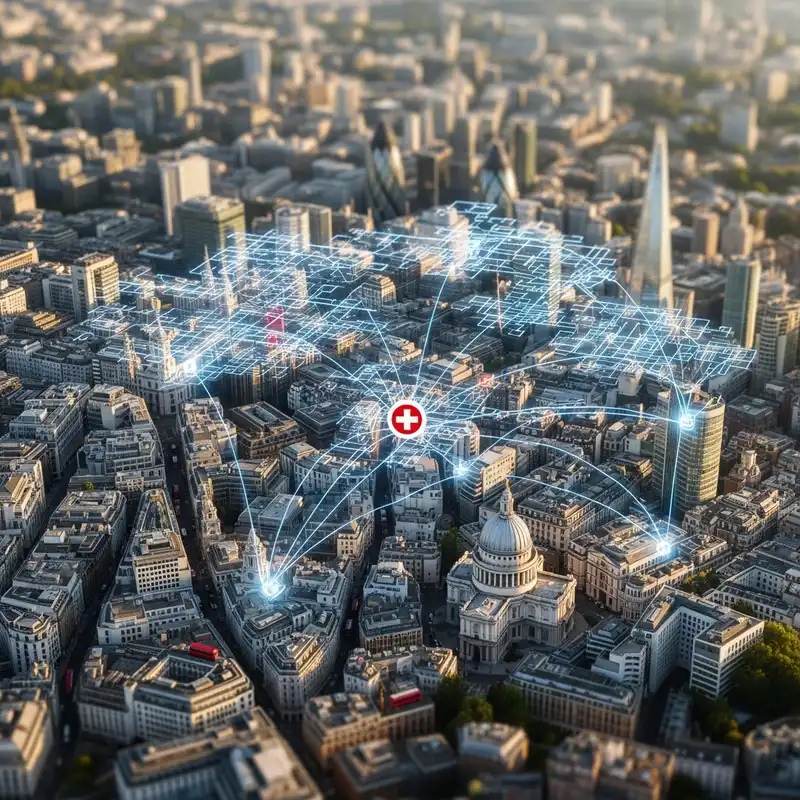TL;DR
Before we dive into the technology, it's crucial to understand the legal foundations of motor insurance in the UK. Driving a vehicle on a road or in a public place without at least a basic level of insurance is a serious offence, carrying penalties of unlimited fines, driving bans, and points on your licence. The law requires you to have a minimum of Third-Party Only cover.
Key takeaways
- Speed: Whether you stick to speed limits.
- Acceleration: How smoothly you pull away.
- Braking: Whether you brake harshly or gently in anticipation of hazards.
- Cornering: How you handle bends and roundabouts.
- Time of Day: Driving during rush hour or late at night is often considered higher risk.
WeCovr explores two popular driving technologies and how they affect your motor cover costs
In the ever-evolving world of UK motor insurance, technology is empowering drivers to take more control over their premiums. As an FCA-authorised expert broker, WeCovr has helped over 900,000 clients find the right cover, and we've seen first-hand how two devices—the black box and the dashcam—are changing the game. But which one is the champion of cheaper premiums?
This comprehensive guide breaks down everything you need to know about telematics (black boxes) and dashcams, helping you decide which technology is the right fit for your driving style, your vehicle, and your wallet.
First, A Quick Refresher on UK Motor Insurance Law
Before we dive into the technology, it's crucial to understand the legal foundations of motor insurance in the UK. Driving a vehicle on a road or in a public place without at least a basic level of insurance is a serious offence, carrying penalties of unlimited fines, driving bans, and points on your licence.
The law requires you to have a minimum of Third-Party Only cover. Here’s a breakdown of the three main levels of car insurance:
| Level of Cover | What It Covers | Who It's Good For |
|---|---|---|
| Third-Party Only (TPO) | Covers injury to other people (third parties) and damage to their property or vehicle. It does not cover damage to your own car. | This is the absolute legal minimum. It is often, but not always, the cheapest option. |
| Third-Party, Fire & Theft (TPFT) | Includes everything from TPO, plus it covers your vehicle if it is stolen or damaged by fire. | Offers a middle ground of protection, providing more peace of mind than basic TPO. |
| Comprehensive (Comp) | The highest level of cover. It includes everything from TPFT, plus it covers damage to your own vehicle, even if the accident was your fault. It often includes extras like windscreen cover. | The most complete protection available. Surprisingly, comprehensive cover can sometimes be cheaper than lower levels, as insurers may view drivers who choose it as more responsible. |
For businesses and fleets: The legal obligations are the same. Every vehicle in your fleet must have at least TPO insurance. However, business use requires a specific commercial policy, as standard private car insurance will not cover work-related driving. Fleet insurance is a cost-effective way to cover multiple vehicles under a single policy, simplifying administration and often reducing overall costs.
Understanding Key Insurance Terms That Affect Your Premium
Your insurance quote is influenced by more than just the level of cover. Here are a few key concepts that directly impact how much you pay:
- No-Claims Bonus (NCB) or No-Claims Discount (NCD): This is one of the most valuable assets a driver has. For every consecutive year you drive without making a claim, your insurer rewards you with a discount on your premium. This can build up to a significant saving, often over 70% after five or more claim-free years. Making an 'at-fault' claim will typically reduce your NCB by two years, causing your premium to rise sharply at renewal.
- Excess: This is the amount of money you agree to pay towards a claim before the insurer pays the rest. There are two types:
- Compulsory Excess: A fixed amount set by the insurer.
- Voluntary Excess: An additional amount you choose to pay. A higher voluntary excess usually results in a lower premium, but you must ensure you can afford to pay the total excess (compulsory + voluntary) if you need to make a claim.
- Optional Extras: These are add-ons you can buy to enhance your policy. Common extras include:
- Breakdown Cover: Roadside assistance if your vehicle breaks down.
- Motor Legal Protection: Covers legal costs if you're involved in an accident that isn't your fault.
- Guaranteed Courtesy Car: Ensures you get a replacement vehicle while yours is being repaired.
- Key Cover: Pays for replacement keys if yours are lost or stolen.
Now, let's explore how technology can influence these factors and lower your costs.
Deep Dive: What is a Black Box and How Does Telematics Insurance Work?
Telematics insurance, commonly known as 'black box' insurance, uses a small device to monitor how, when, and where you drive. It’s no longer just a physical box professionally fitted to your car; it can also be a self-installed 'plug-and-drive' device that goes into your car's OBD port or even a smartphone app.
What does a black box record?
The device uses GPS and motion sensors to collect a wealth of data about your driving habits, including:
- Speed: Whether you stick to speed limits.
- Acceleration: How smoothly you pull away.
- Braking: Whether you brake harshly or gently in anticipation of hazards.
- Cornering: How you handle bends and roundabouts.
- Time of Day: Driving during rush hour or late at night is often considered higher risk.
- Mileage: The total distance you cover.
- Journeys: The types of roads you use (e.g., motorways vs. urban streets).
This data is then sent back to your insurer and used to generate a 'driving score'. A consistently good score proves you are a low-risk driver, leading to discounts on your premium.
Pros and Cons of Black Box Insurance
| Advantages of a Black Box | Disadvantages of a Black Box |
|---|---|
| Significant Premium Discounts: The single biggest benefit, especially for high-risk groups like young drivers, where savings can reach up to 40% or more. | Potential for Penalties: Poor driving, such as consistent speeding, can lead to your premium increasing or your policy being cancelled. |
| Fairer Pricing: Your premium is based on your actual driving, not just statistics for your age group or postcode. | Driving Curfews: Some policies penalise or prohibit driving at high-risk times, typically between 11 pm and 5 am. |
| Driver Feedback: Most providers offer an online dashboard or app to review your journeys and scores, helping you become a safer, more conscious driver. | Mileage Restrictions: Policies often come with an annual mileage limit. Exceeding it can lead to extra charges. |
| Theft Tracking: The built-in GPS is a powerful anti-theft tool, increasing the chances of your vehicle being recovered if it's stolen. | Privacy Concerns: You are sharing detailed data about your movements and driving habits with your insurer. |
| Accident Support: In a serious crash, the device can automatically alert the insurer or emergency services to your location. | Installation/Admin Fees: While many policies offer free installation, some may have associated fees. |
Who Benefits Most from a Black Box?
- Young and New Drivers: Drivers aged 17-24 face notoriously high premiums because they are statistically more likely to be involved in accidents. According to the Department for Transport, they are over-represented in serious and fatal collisions. A black box allows them to prove they are safe drivers and escape these demographic penalties.
- Low-Mileage Drivers: If you don't drive often—perhaps you work from home or primarily use public transport—telematics can verify your low mileage, leading to a cheaper quote.
- Drivers with Convictions: For those with previous driving convictions, a black box can be a route back to affordable insurance by demonstrating responsible on-road behaviour.
Understanding the Dashcam: Your Independent Witness on the Road
A dashcam is a small camera mounted on your windscreen or rear window that continuously records video footage of your journeys. Unlike a black box, it does not typically track your driving style (speed, braking, etc.) for the insurer. Its primary purpose is to act as an impartial witness in the event of an incident.
How does a dashcam affect your motor insurance?
The value of a dashcam is all about evidence. In an accident, blame can be difficult to prove. Without evidence, insurers may be forced to settle a claim on a 50/50 basis, where both parties are deemed partially at fault. This would result in both drivers losing their No-Claims Bonus.
With clear video footage, it’s much easier to establish exactly what happened and who was responsible.
Pros and Cons of a Dashcam
| Advantages of a Dashcam | Disadvantages of a Dashcam |
|---|---|
| Protects Your No-Claims Bonus: Indisputable evidence can prove an accident wasn't your fault, protecting your valuable NCB from being reduced. This is a huge long-term saving. | Upfront Cost: You have to buy the dashcam yourself. Prices range from £50 for a basic model to over £300 for a high-end front-and-rear system. |
| Upfront Premium Discount: A growing number of UK insurers offer an immediate discount, typically between 10% and 15%, just for having a dashcam installed. | Footage Can Be Used Against You: If the footage clearly shows you were at fault, it will be used as evidence against you. Honesty is the best policy. |
| Deters Insurance Fraud: Dashcams are a powerful deterrent against 'crash for cash' scams, where fraudsters intentionally cause accidents to make bogus injury claims. | Installation and Legality: It must be installed correctly so it doesn't obstruct your view of the road, as per UK law. |
| Faster Claims Resolution: Video evidence speeds up the claims process, reducing stress and getting you back on the road sooner. | Privacy and Data Management: You are responsible for managing the footage. You must inform passengers if audio is being recorded. |
| Encourages Safer Driving: Knowing you're being recorded can make you a more mindful and patient driver. | Not All Insurers Offer a Discount: While the number is growing, a discount is not yet guaranteed with every provider. |
Who Benefits Most from a Dashcam?
- Experienced Drivers: If you have a substantial No-Claims Bonus to protect, a dashcam is an excellent investment. The cost of losing a 60-70% discount for several years far outweighs the price of the camera.
- High-Mileage Drivers: The more time you spend on the road, the higher your statistical chance of being involved in an incident. A dashcam provides constant protection.
- Urban Drivers and Fleet Vehicles: Drivers in busy city environments or professional drivers are more exposed to complex traffic situations and potential fraud. A dashcam is an essential tool for risk management.
Black Box vs. Dashcam: Which Technology Offers the Biggest Savings?
This is the core question. The answer depends entirely on your driver profile and what you want to achieve. A black box offers potentially larger direct savings on your premium, while a dashcam offers stronger protection for your long-term savings (your NCB).
Here’s a head-to-head comparison:
| Feature | Black Box (Telematics) | Dashcam |
|---|---|---|
| How It Works | Monitors driving behaviour (speed, braking, etc.) to generate a risk score. | Records video evidence of the road ahead (and sometimes behind). |
| How It Saves You Money | Directly: Good driving score leads to dynamic discounts at renewal, or even monthly rewards. Potential for 30%+ savings. | Indirectly: Protects No-Claims Bonus by proving you were not at fault in an accident. Directly: Some insurers offer a fixed upfront discount (e.g., 10-15%). |
| Best For | Young drivers, new drivers, low-mileage drivers, those with past convictions. | Experienced drivers with a large NCB, high-mileage drivers, fleet vehicles, anyone wanting protection from fraud. |
| Biggest Drawback | Restrictive (curfews, mileage limits) and can lead to premium increases for poor driving. Privacy concerns. | Initial purchase cost. Footage can incriminate you if you are at fault. |
| Data Collection | Gathers comprehensive telematics data: location, speed, acceleration, braking, time of day. | Gathers video and (optional) audio footage. GPS location is often included. |
| Impact on Claims | Data can be used to help establish the circumstances of an accident (e.g., speed at impact). | Video footage is the primary evidence for establishing fault. |
The verdict?
- For the biggest potential upfront premium reduction, especially if you're in a high-risk group, the black box is the clear winner.
- For protecting your long-term driving record and hard-earned No-Claims Bonus, the dashcam is an invaluable investment.
The Ultimate Combination: Using a Black Box and a Dashcam Together
Why choose one when you can have both? For the ultimate level of protection and potential savings, using a telematics policy alongside a dashcam is the new gold standard.
- The black box works to lower your premium based on safe driving behaviour.
- The dashcam stands ready to provide crucial evidence to protect you if an incident occurs.
This combination tells an insurer that you are a highly responsible driver who is serious about road safety and risk management. While not all insurers offer a specific 'double discount', the combination of a telematics discount and the security a dashcam provides makes for a very compelling insurance profile.
More Than Just Gadgets: Proven Ways to Reduce Your Car Insurance Costs
Technology is a great tool, but it's not the only way to get cheaper motor insurance in the UK. Here are some other tried-and-tested methods:
- Shop Around and Compare: This is the single most effective way to save money. Never simply auto-renew. Premiums vary wildly between insurers. Using an expert broker like WeCovr allows you to compare quotes from a wide panel of leading UK insurers in minutes, ensuring you find the best deal for your circumstances at no extra cost.
- Increase Your Voluntary Excess: Agreeing to pay more towards a claim can lower your premium, but make sure the total excess is affordable.
- Pay Annually: Paying your premium in one go avoids interest charges that are applied to monthly payment plans.
- Choose Your Car Carefully: Cars are categorised into 50 insurance groups. A car in a lower group (like a Fiat 500 or Ford Fiesta) will be much cheaper to insure than a high-performance vehicle in group 50.
- Improve Security: Fitting an approved alarm or immobiliser and parking your car in a garage or on a private driveway overnight can reduce your premium.
- Be Accurate with Mileage: Overestimating your annual mileage will increase your quote. Be realistic, but don't underestimate, as it could invalidate your policy.
- Add a Named Driver: Adding an older, more experienced driver with a good driving history to your policy as a named driver can bring down the premium, especially for younger motorists.
By combining these strategies with the smart use of technology, you can significantly reduce your annual motor insurance costs. At WeCovr, we're proud of our high customer satisfaction ratings, which come from helping clients find these savings. Plus, customers who buy motor or life insurance through us can often access discounts on other types of cover.
Telematics and Dashcams for Business: Managing Risk and Costs for Fleets
For business owners and fleet managers, this technology isn't just about insurance savings—it's about comprehensive risk management, operational efficiency, and fulfilling your duty of care to employees.
Telematics for Fleets:
- Driver Monitoring: Identify risky behaviours like speeding or harsh braking and provide targeted training.
- Fuel Efficiency: Reduce fuel costs by optimising routes and monitoring idling times.
- Maintenance Alerts: Modern systems can track engine health and alert you to upcoming service needs, preventing costly breakdowns.
- Theft and Asset Tracking: Know where your vehicles are at all times.
Dashcams for Fleets:
- Incident Resolution: Quickly resolve claims involving company vehicles, minimising vehicle downtime and protecting the business from liability.
- Fraud Prevention: Commercial vehicles are often targets for 'crash for cash' schemes.
- Driver Training: Use real-world footage as a powerful tool for training drivers on hazard perception and defensive driving.
Integrating both telematics and dashcams across a fleet can lead to substantial reductions in fleet insurance premiums. WeCovr specialises in tailored fleet and business motor insurance, and our experts can advise on how to leverage this technology for maximum benefit.
Do I have to tell my insurer that I have a dashcam?
Can my black box insurance policy be cancelled for bad driving?
Are black box curfews still common in 2025?
What happens to the black box data if I have an accident?
Ready to see how much you could save on your motor insurance? Whether you're a new driver considering a black box, an experienced motorist looking to protect your no-claims bonus, or a business managing a fleet, WeCovr can help. Compare quotes from a panel of leading UK insurers in minutes.
Get your free, no-obligation motor insurance quote from WeCovr today.
Sources
- Department for Transport (DfT): Road safety and transport statistics.
- DVLA / DVSA: UK vehicle and driving regulatory guidance.
- Association of British Insurers (ABI): Motor insurance market and claims publications.
- Financial Conduct Authority (FCA): Insurance conduct and consumer information guidance.





